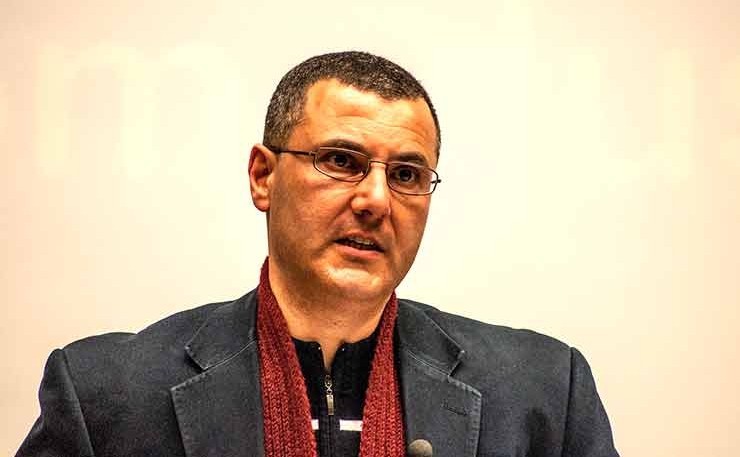The following is an edited extract of an interview with Omar Barghouti, Palestinian human rights defender and co-founder of the BDS movement for Palestinian rights, conducted by Max Chalmers, in April this year. All questions are in italics. It is the basis of a larger feature by Max, which you can read here.
Having advocated BDS for many years, do you see the current moment as a time of expansion, retreat, or plateau for the movement?
OB: This is a period of expansion and further mainstreaming.
It seems you have followed the debate about BDS in Australia (I was directed recently to an article you authored for an online opinion site during the debate about Marrickville council). Are you still following the situation in Australia and are you in contact with domestic activists? What do you make of Australia’s internal debates on Palestine and Israel and on BDS?
OB: I try as much as possible to follow and at times engage in the debate on BDS in Australia, as it is one of the most reactionary and anti-democratic spaces in the west for Palestine solidarity activists and movements.
Have you followed the recent news about Bassem Tamimi’s exclusion from Australia? What’s your reaction?
OB: This is yet another strong indicator of the anti-Palestinian politics of the Australian government which is in stark contradiction to recent opinion polls that show fast growing support for Palestinian rights under international law.
Banning Tamimi from entering Australia also reveals how excessive, intrusive and corrupting the influence of the Israel lobby is on Australian democracy. Israel is exporting its McCarthyism to western states, and the Australian establishment is among the most obsequious in this regard.
What is your message specifically to Australians who are interested in justice for Palestinians?
OB: Just as many Australians courageously stood on the right side of history in the global struggle against apartheid in South Africa, Palestinians hope that many Australians will also support the Palestinian struggle for freedom, justice and equality.
At the very least, we expect you to do no harm, to cut relations of complicity with Israel’s regime of occupation, settler-colonialism and apartheid and all the institutions and corporations that enable it to carry out its pernicious human rights violations.
The Executive Council of the Australian Jewry has a document that attempts to refute the claims of BDS and a key component appears to be linking it to the Durban 1 conference. “The “make-over” of BDS in 2005, occurred precisely because of its toxic association with Durban 1,” the document says. What is your response to the idea that the 2005 call to BDS was a “make-over” of an original attempt to isolate Israel at Durban 1, and did you personally have any involvement in Durban 1?
OB: The inspiring impact of the World Anti-Racism Conference, held in Durban, on the origins of the BDS movement are well documented on the BDS movement’s website. But first and foremost, BDS is a Palestinian-led movement that is rooted in decades of Palestinian nonviolent resistance to Israel’s occupation, ethnic cleansing and apartheid. It seeks to isolate Israel’s regime of oppression just as South Africa’s regime was isolated in pursuit of the rights of the Black majority.
The document also singles out the BDS’s call for ending Israeli “occupation and colonisation of all Arab lands” – what is meant by “Arab lands”?
OB: This refers to all Arab lands occupied by Israel in 1967. This includes Gaza, the West Bank (including East Jerusalem), the Syrian Golan Heights and the Lebanese Shab’a Farms.
There is also a significant focus on your personal views re: a two or one state solution, even though BDS itself does not take a position on this. Do you think BDS’s aims could be achieved under either framework?
OB: Yes. Ending Israel’s occupation, apartheid and denial of refugee rights is an essential condition for any just peace, whether in a two-state or one-state framework.
Do you think it’s fair to say more and more Palestinians are losing faith in the two-state solution and, if so, why are they?
OB: Irrelevant to the interview focus, in my view.
Donate To New Matilda
New Matilda is a small, independent media outlet. We survive through reader contributions, and never losing a lawsuit. If you got something from this article, giving something back helps us to continue speaking truth to power. Every little bit counts.





